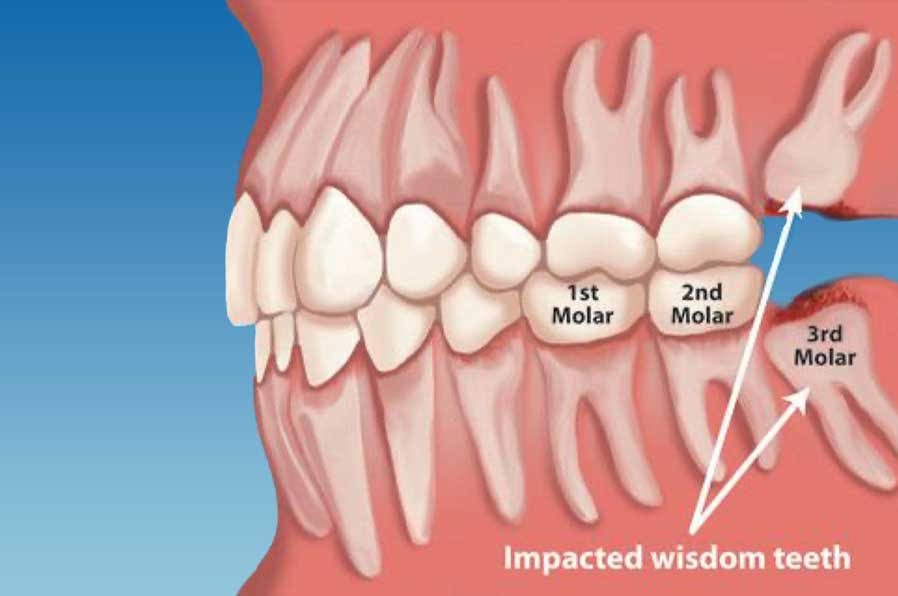
What Do You Expect When Getting Your Wisdom Teeth Removed
Guide to wisdom teeth removal: Last molars often cause pain. Surgery is necessary for oral health. Learn what to expect.
Wisdom Teeth
11 April 2024
Wisdom teeth, known as third molars, are the last to emerge in the oral cavity. These teeth can pose significant dental issues for many individuals, leading to discomfort and sometimes excruciating pain. When the time comes to address these concerns, getting your wisdom teeth removed becomes a necessary step towards oral health and well-being. This comprehensive guide delves into the expectations surrounding the wisdom teeth removal process, providing insights and clarity for those embarking on this journey.
Understanding the Need for Wisdom Teeth Removal
Wisdom teeth often erupt during the late teens or early twenties. While some individuals may experience no complications, others may encounter various issues due to lack of space in the mouth, leading to impacted or partially erupted wisdom teeth. These conditions can result in pain, swelling, infection, and even damage to adjacent teeth.
Signs and Symptoms
Identifying the need for wisdom teeth removal involves recognising certain signs and symptoms, including:
- Pain or discomfort in the back of the mouth.
- Swelling or tenderness in the gums.
- Difficulty opening the mouth fully.
- Jaw stiffness.
- Unpleasant taste or odour due to infection.
Preparing for the Procedure
Before undergoing wisdom teeth removal, thorough preparation is essential to ensure a smooth and successful process. This preparation typically involves:
Consultation with a Dental Professional
Schedule a consultation with an experienced dentist or oral surgeon to assess your wisdom teeth and determine the best course of action. During this visit, your dental professional will conduct a comprehensive examination, which may include X-rays to evaluate the position of your wisdom teeth and anticipate any potential complications.
Discussion of Treatment Options
Based on the assessment, your dentist will discuss the various treatment options available, including whether wisdom teeth removal is necessary and the preferred approach for the procedure. This discussion will also cover anaesthesia options and any potential risks or complications associated with the surgery.
Preoperative Instructions
In the days leading up to the wisdom teeth removal, follow any preoperative instructions provided by your dental professional. This may include fasting for a specified period before the surgery and avoiding certain medications that can increase the risk of bleeding.
What to Expect During the Procedure
On the day of the wisdom teeth removal, you will arrive at the dental office or surgical centre prepared and ready for the procedure. Here’s what you can expect:
Anaesthesia Administration
Before beginning the surgery, your dental professional will administer anaesthesia to ensure your comfort and minimise any pain or discomfort during the procedure. Depending on the complexity of the surgery and your personal preferences, options may include local anaesthesia, intravenous sedation, or general anaesthesia.
Surgical Extraction
The wisdom teeth removal procedure involves the surgical extraction of one or more third molars from the mouth. Using specialised instruments, your dental professional will carefully remove the affected teeth while taking precautions to preserve surrounding tissues and minimise trauma.
Postoperative Care Instructions
Following the wisdom teeth removal, your dental professional will provide detailed postoperative care instructions to promote optimal healing and minimise the risk of complications. These instructions may include:
- Managing pain and discomfort with prescribed or over-the-counter medications.
- Controlling swelling with cold compresses applied to the cheeks.
- Maintaining proper oral hygiene by gently rinsing with saltwater and avoiding vigorous brushing or rinsing.
- Eating soft foods and avoiding hard, hot, or spicy foods that can irritate the surgical sites.
- Attending follow-up appointments to monitor healing and address any concerns.
Recovery and Healing Process
The recovery period following wisdom teeth removal varies from person to person but typically lasts about one to two weeks. During this time, following your dental professional’s instructions diligently is essential to ensure a smooth and complication-free healing process.
Immediate Aftercare
In the hours immediately following the wisdom teeth removal, you may experience some bleeding, swelling, and discomfort. Following the recommended aftercare instructions, such as applying gauze to the extraction sites and avoiding strenuous activities, can help alleviate these symptoms and promote healing.
Long-Term Healing
As the days pass, you will gradually notice improvements in your condition as the surgical sites heal and the discomfort subsides. However, it’s crucial to continue practising good oral hygiene and attending follow-up appointments to monitor your progress and address any concerns.
Conclusion
Removing your wisdom teeth is a significant dental procedure that can improve oral health and quality of life. By understanding the process and knowing what to expect before, during, and after the surgery, you can approach the experience with confidence and peace of mind.





